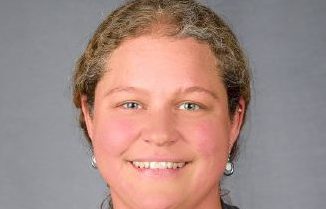JOHNSTON: Hindsight is 20/20 — Financial lessons learned from COVID-19
Published 3:16 pm Monday, December 14, 2020

- Shonda Johnston is the Clark County Extension agent for family and consumer sciences.
|
Getting your Trinity Audio player ready...
|
Tough economic times encourage consumers to spend and save wisely. 2020 was definitely a tough time in general, but especially with regard to finances. Consider a few financial lessons we can learn from COVID-19.
ESTABLISH AN EMERGENCY FUND
If there is one thing 2020 taught us, it is to expect the unexpected. The best way to face periods of economic uncertainty is to be prepared.
As a result of the pandemic, many Kentucky families suffered unemployment or reduced wages. A family with an emergency fund can better survive a sudden financial loss.
The Federal Reserve recommends that people save a minimum of three months’ expenses in a “rainy day fund.”
Emergency savings allow families to make essential payments such as housing, utilities, food and medical needs when their income unexpectedly decreases or their expenses unexpectedly increase.
PAY DOWN DEBT
Debt can be debilitating, especially during times of financial strain.
Debt may include mortgage payments, car loans, student loans, credit card debt or other forms of money owed.
Regardless of income level, it is important to keep a low debt-to-income ratio.
Some people make the mistake of believing they can “afford” to take on more debt as their income grows. However, the pandemic reminded us that everyone is susceptible to job loss and unexpected financial strain.
When money is tight, just paying for essentials becomes challenging. This makes debt payments seem insurmountable.
Work to pay down debt in the new year. The less you owe to creditors, the more money you have for what matters.
Also, know your loan protections. In times of hardship, mortgage or student loans may offer forbearance, deferment options or even provisions granted by the CARES Act.
Before you miss a payment, discuss with creditors options for repayment or lowering your interest rate.
BUDGET YOUR RESOURCES
The pandemic also required people to redefine “essential” and consider better ways to manage their household resources.
Many families were forced to establish a budget and reexamine how much money they spent on eating out, entertainment, monthly subscriptions and other nonessentials.
Families looked for ways to cut costs on groceries and utilities, as well as manage other items because of supply shortages and purchasing limits.
The pandemic of 2020 reinforced how crucial it is to budget our resources, as well as reprioritize and reduce our expenses.
From toilet paper and paper towels, to cleaning products and hand soap, to rice and poultry, families learned creative ways to make the most of their resources, reducing costs and waste where they could.
HINDSIGHT IS 20/20
As you reflect on the events of 2020 and consider the financial challenges your family faced during the pandemic, think about what you can do differently in the future to be more prepared.
Hindsight is often a powerful teacher. So as we are saying goodbye to 2020, let’s take what we’ve learned and make new goals for 2021.
If you would like more information on budgeting and financial management, call the Clark County Extension office.
Shonda Johnston is the Clark County Extension agent for family and consumer sciences. She can be reached at 859-744-4682 or by email at shonda.johnston@uky.edu.





